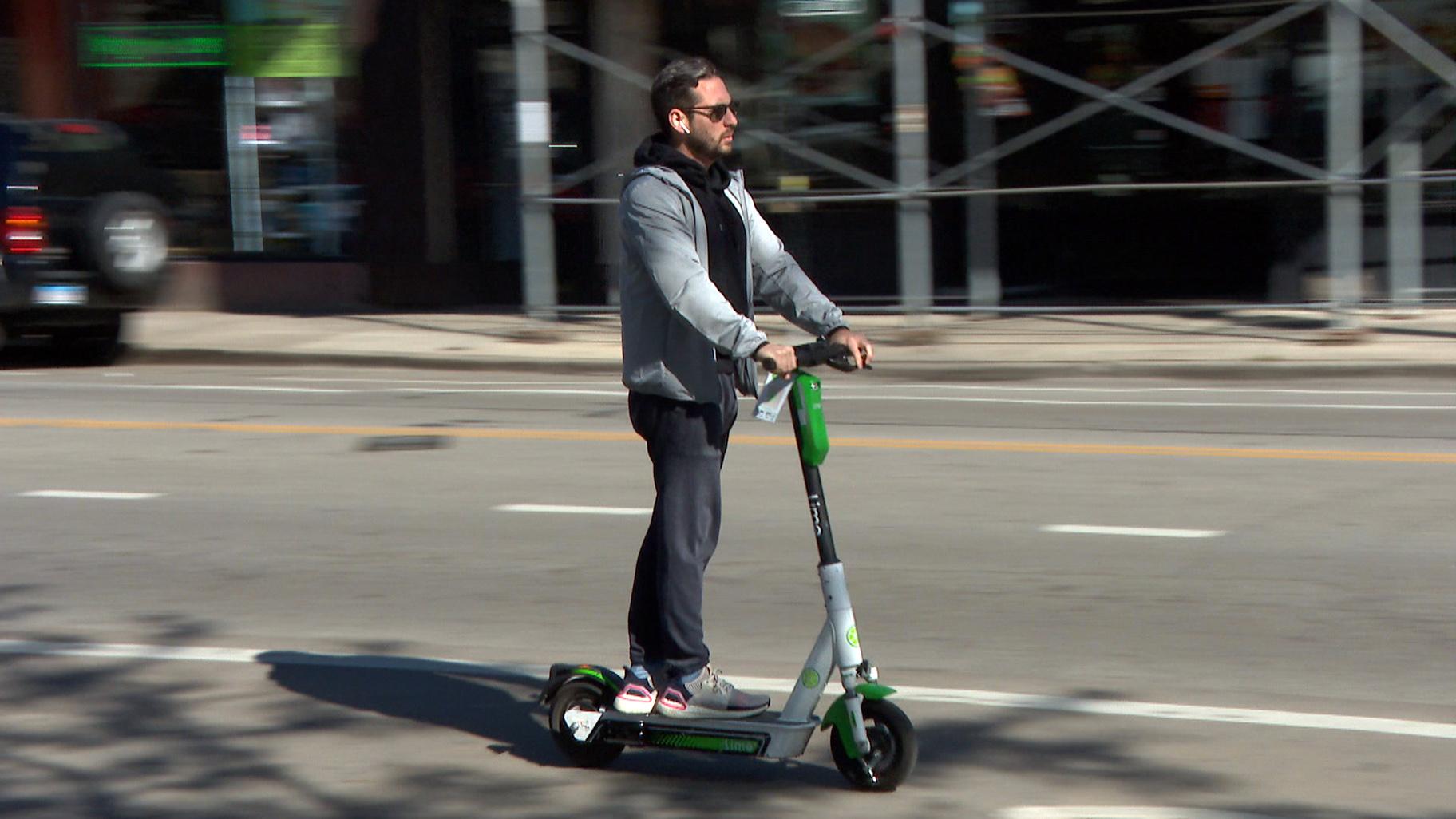 (WTTW News)
(WTTW News)
Chicagoans took 230,400 rides on electric scooters in the first month of a second trial run designed to determine whether the two-wheelers can help reduce congestion and solo car trips, according to data released Wednesday by the Chicago Department of Transportation.
Thanks to our sponsors:
That represents a decline from the first month of the initial test of the scooters in Chicago between June and July 2019, officials said. That initial test of scooters in Chicago featured just 2,500 devices and was limited to just the West and Northwest sides of the city.
The current pilot program includes 10,000 scooters, which are allowed to roam throughout the city — but not downtown or along the lakefront or 606 trails — and half have to be docked on the South and West sides, according to the city’s rules.
The average scooter trip taken between Aug. 12 and Sept. 12 was 1.87 miles — 34% longer than the average trip during the first month of the first pilot program, according to the data released Wednesday.
“While initial demand is lower than last year’s pilot, we are encouraged by both the data and anecdotal reports from residents, advocates and city staff that indicate the lock-to-cable requirement has significantly reduced the number of instances of devices blocking sidewalks,” said Chicago Department of Transportation Commissioner Gia Biagi.
Scooter-related complaints to 3-1-1 dropped 60% as compared with the first month of the initial pilot, according to the data released by city officials.
However, Biagi said the city is still struggling to keep people from riding scooters on sidewalks, and officials are working with the three permitted scooter firms — Bird, Lime and Spin — to increase rider education efforts.
Each scooter must now have a tag hanging from it reminding riders not to operate it on a sidewalk and to lock it up at the end of their trip, officials said. Scooters can be docked to bicycle racks, corrals, street signs, defunct parking meters and light poles — but not bus stop poles, according to the city’s rules.
City officials warned Bird and Lime six times each to correct issues; Spin got two warnings, officials said.
“We are encouraged by the results of the first month but continue to work to hold the companies accountable to our strict terms and requirements,” said Business Affairs and Consumer Protection Commissioner Rosa Escareno.
During the first month, the three firms came close to meeting the city rules that they each dock 50% of their scooters on the city’s South and West sides, according to the data released by the city.
The pilot will last for four months, officials said.
Approximately 820,000 rides were taken during the pilot program that ran from June to October 2019 on the West and Northwest sides of the city, according to the final evaluation of the pilot program from the city and the Center for Neighborhood Technology.
Nearly all of the companies were cited for infractions during the first pilot program, officials said.
City officials designed the second pilot program to determine whether the scooters would give commuters an environmentally friendly option to reach buses, trains and Divvy bicycles and reduce car trips.
Contact Heather Cherone: @HeatherCherone | (773) 569-1863 | [email protected]
Thanks to our sponsors:
Thanks to our sponsors:
"first" - Google News
September 17, 2020 at 02:07AM
https://ift.tt/35IBPj9
Chicagoans Log 230K Rides In First Month After Scooters Return to Chicago - WTTW News
"first" - Google News
https://ift.tt/2QqCv4E
https://ift.tt/3bWWEYd
Bagikan Berita Ini














0 Response to "Chicagoans Log 230K Rides In First Month After Scooters Return to Chicago - WTTW News"
Post a Comment